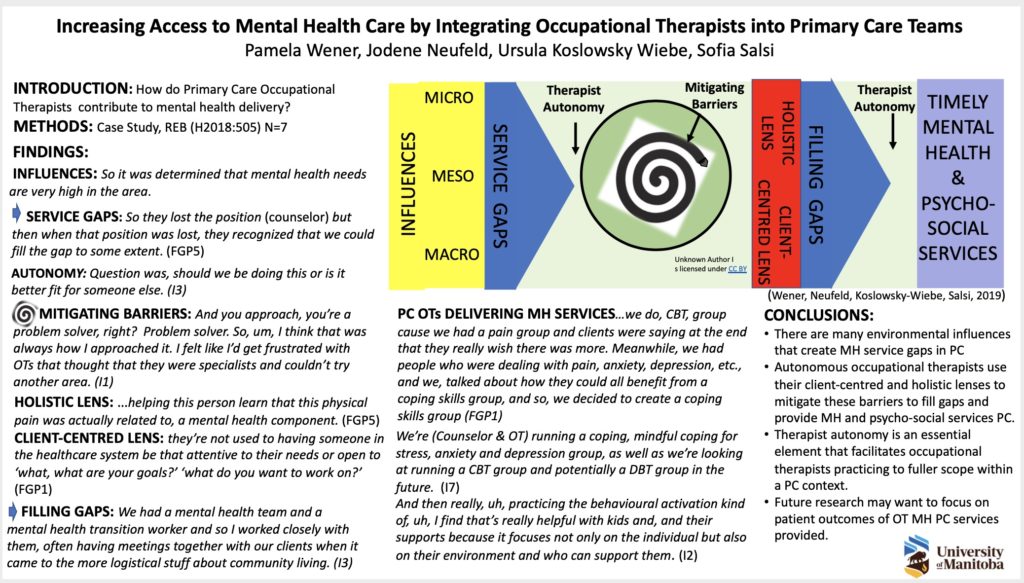Background: Publicly funded primary care is being called upon to provide equitable healthcare to all. Bridging the gap between mental health/psycho-social care needs and the lack of available services is an important contribution to attaining equitable healthcare. Occupational therapists working in primary care are well positioned to make a contribution to bridging this service delivery gap. To date, occupational therapists’ contributions to mental health/psycho- social service delivery in primary care have not been explored. Study Design: To explore the contribution and experiences of primary care occupational therapists delivering mental health and psycho-social services Qualitative Case Study design was used. Population: Occupational therapists (n=7) from one medium sized urban centre in Canada participated in this study. Data Collection and Analysis: Data collected via individual and group semi-structured interviews were analyzed inductively, guided by Braun and Clarke’s (2006) six-step approach: 1) data familiarization 2) generate initial codes 3) develop themes 4) review themes 5) define and name themes 6) report. Results: Occupational therapists are holistic practitioners who as client-centred generalists, deliver mental health/ psycho-social services in primary care. Environmental influences at the micro, meso and macro levels, create gaps in service. Primary care occupational therapists use their client-centred generalist lens to identify the environmental barriers and facilitators; then mitigate the barriers and use the facilitators to provide mental health/psycho-social services. Conclusions: As client-centred generalists, occupational therapists are taking steps towards addressing equitability by providing access to needed mental health/psycho-social services to clients in primary care settings. Providing access to publicly funded quality mental health/psycho-social services, may address socioeconomic inequities thereby improving health of communities.
Spring Virtual Conference April 17-18th | In-Person Annual Conference in San Antonio, TX Oct 24-26th


Leave a Reply